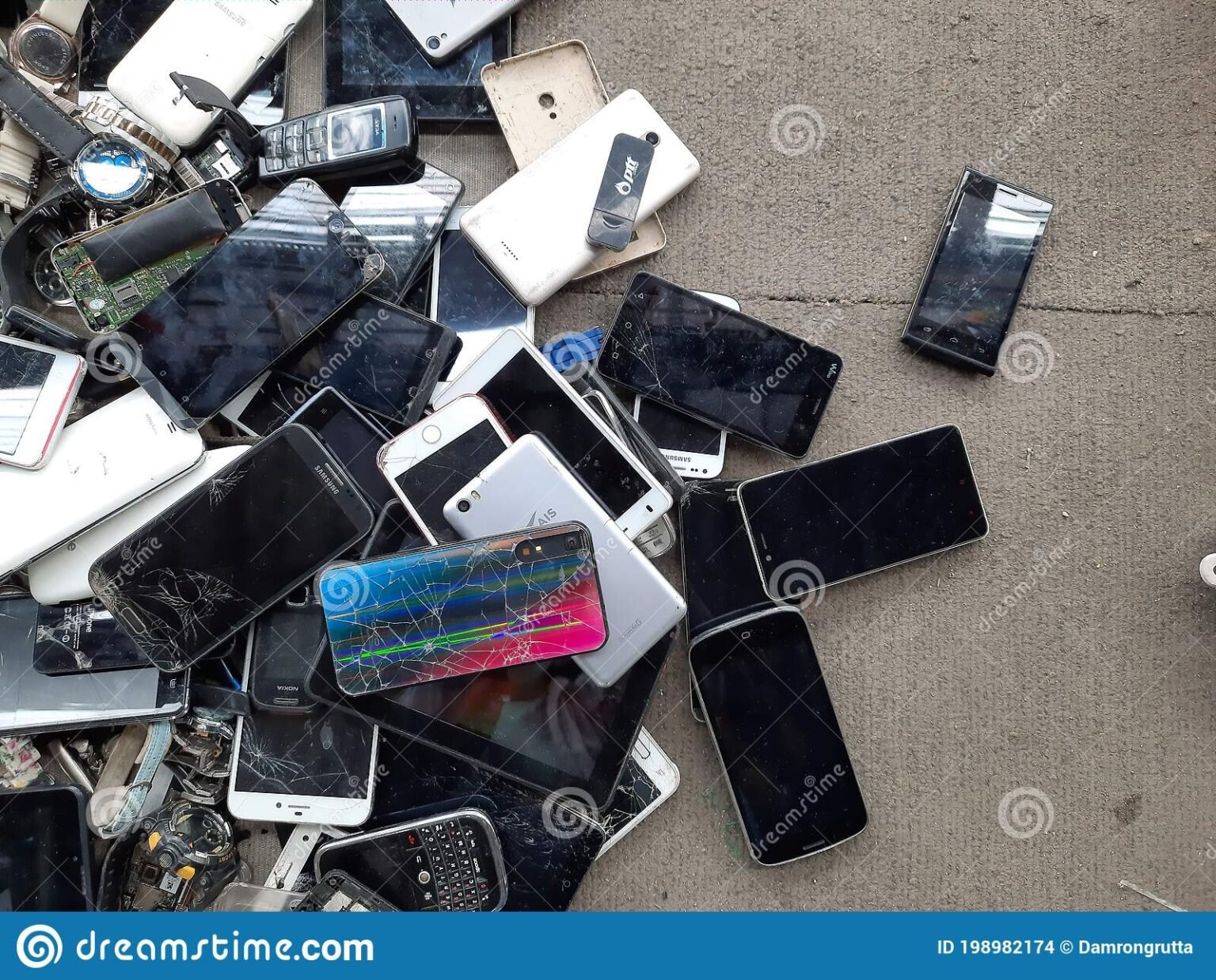According to the International Waste Electrical and Electronic Equipment (WEEE) Forum, 5.3 billion mobile phones will be discarded this year.
Its projection, which is based on data on worldwide trade, emphasises the expanding environmental issue of “e-waste.”
According to study, a lot of consumers keep their old phones rather than recycle them.
The cobalt in rechargeable batteries and the copper in wiring are precious minerals that cannot be obtained from used devices and must instead be mined.
WEEE director general Pascal Leroy noted that “people tend to not realize that all these seemingly little objects have a lot of value and together at a global level represent tremendous volumes.”
Worldwide, there are reportedly 16 billion mobile phones; in Europe, just around a third are still in use.
The “mountain” of electrical and electronic waste, which includes everything from washing machines and toasters to tablet computers and global positioning system (GPS) devices, will reach 74 million tonnes annually by 2030, according to data by the WEEE.
The Royal Society of Chemistry earlier this year started a campaign advocating the mining of e-waste to create new products, emphasising how international instability, such as the situation in Ukraine, threatens supply chains for precious metals.
“These devices offer many important resources that can be used in the manufacture of new electronic devices or other equipment, such as wind turbines, electric car batteries, or solar panels – all crucial for the green, digital transition to low-carbon societies,” said Magdalena Charytanowicz of the WEEE.
The “mountain” of electrical and electronic waste, which includes everything from washing machines and toasters to tablet computers and global positioning system (GPS) devices, will reach 74 million tonnes annually by 2030, according to data by the WEEE.
The Royal Society of Chemistry earlier this year started a campaign advocating the mining of e-waste to create new products, emphasising how international instability, such as the situation in Ukraine, threatens supply chains for precious metals.
“These devices offer many important resources that can be used in the manufacture of new electronic devices or other equipment, such as wind turbines, electric car batteries, or solar panels – all crucial for the green, digital transition to low-carbon societies,” said Magdalena Charytanowicz of the WEEE.
The group’s internet campaign offers advice, including details on where to find recycling facilities.
Leroy claimed that a lot more could be done.
To encourage the return of these products, he stated, “collection boxes in supermarkets, pick-up of minor broken appliances upon delivery of new ones, and offering PO [post-office] boxes for returning tiny e-waste are just some of the efforts undertaken.”


